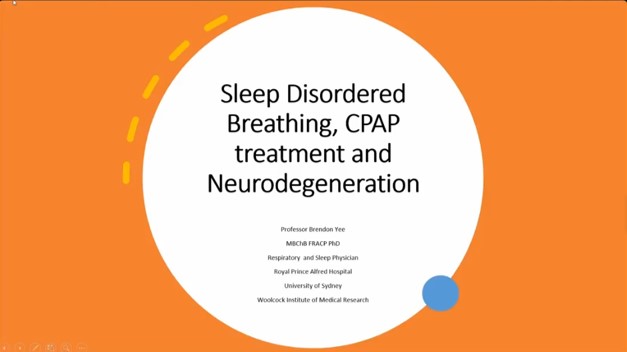
There is emerging evidence that obstructive sleep apnea is a risk factor for cognitive impairment and dementia. OSA is characterised by frequent pauses in breathing due to upper airway closure during sleep. These events lead to severe sleep fragmentation and intermittent hypoxia. Nocturnal hypoxia related neuroinflammation and oxidative stress in the brain while sleep fragmentation increases neuronal activity and amyloid-B release. These changes may also lead to the impairment of glial-lymphatic “glymphatic” fluid clearance further leading to accumulation of amyloid-B and tau protein leasing to the formation of plaques or tangles in the brain.
Neuroimaging in OSA show neuroanatomical changes that are parallel to those seen in ageing. Whether these changes are accelerated by OSA or other comorbid disorders remains to be tested. Therapy of OSA with CPAP may reverses some of these changes. CPAP may also improve cognition and prevent cognitive decline. Although there is considerable heterogeneity into which cognitive domains improve with CPAP. CPAP may also improve neuroimaging and other potential blood biomarkers of dementia.
We will discuss the literature and the gaps in knowledge we have in this important area of research.